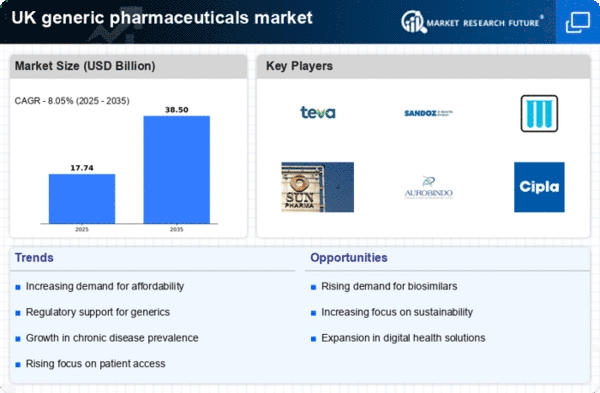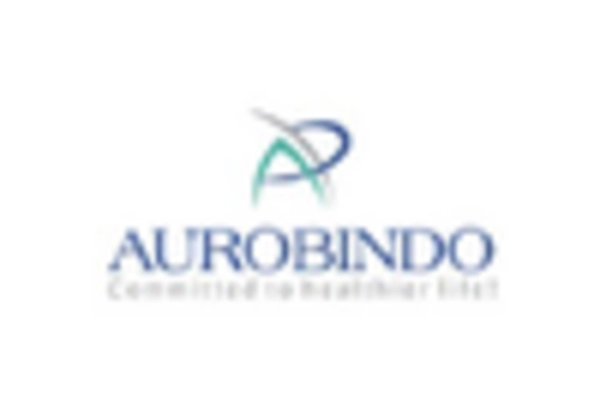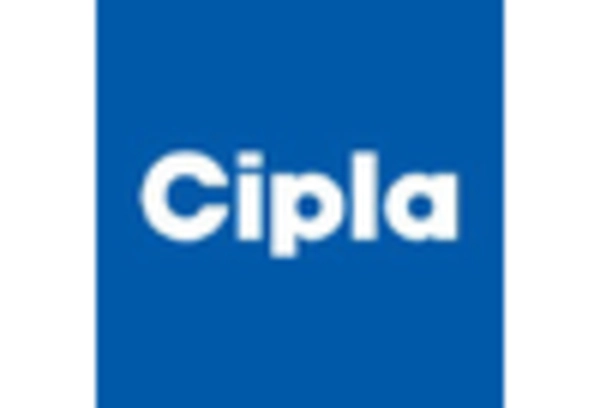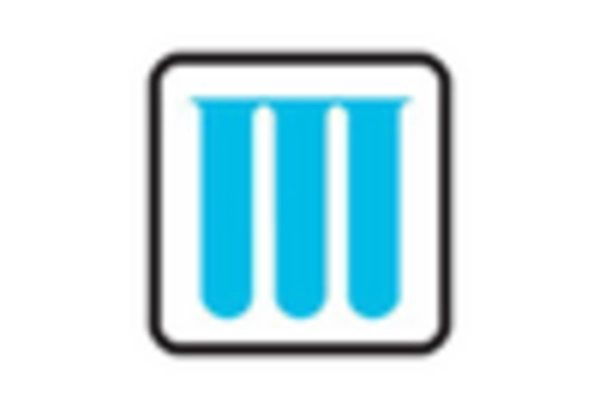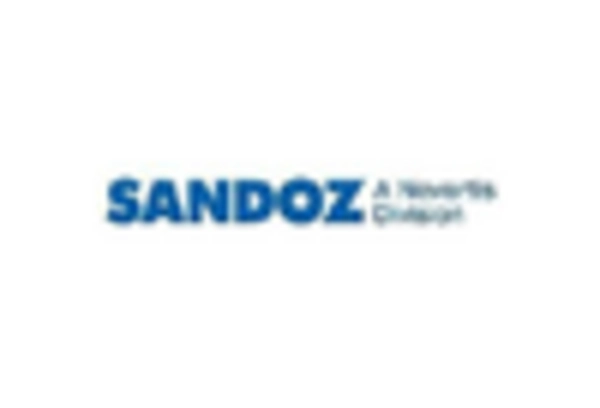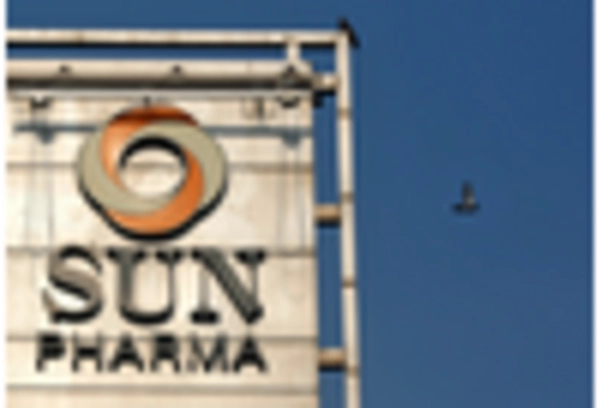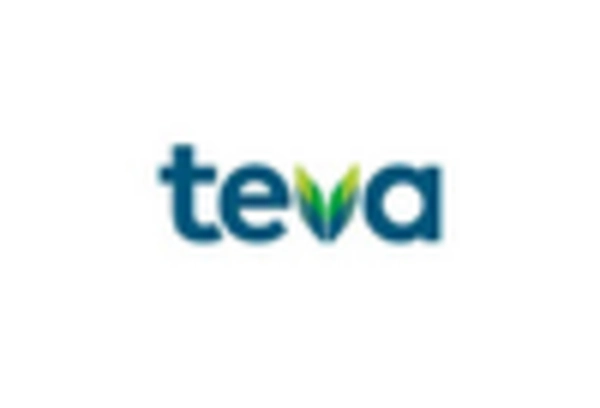Aging Population
The demographic shift towards an aging population in the UK is significantly influencing the generic pharmaceuticals market. As individuals age, they often experience a higher prevalence of chronic diseases, necessitating ongoing medication management. By 2025, it is projected that over 18% of the UK population will be aged 65 and older, leading to increased demand for affordable medication options. Generic drugs, which offer the same therapeutic benefits as branded medications at a lower cost, are particularly appealing to this demographic. The growing reliance on generics for managing age-related health conditions is likely to drive market expansion. Furthermore, the NHS's commitment to promoting generic prescribing aligns with the needs of an aging population, thereby reinforcing the importance of the generic pharmaceuticals market in the UK.
Rising Healthcare Costs
The escalating costs associated with healthcare in the UK are driving the demand for the generic pharmaceuticals market. As the National Health Service (NHS) faces budget constraints, there is an increasing emphasis on cost-effective treatment options. Generic drugs, which are typically priced 20-80% lower than their branded counterparts, provide a viable solution to mitigate these rising expenses. In 2024, the NHS reported that generic medications accounted for approximately 80% of all prescriptions dispensed, highlighting their critical role in maintaining healthcare affordability. This trend is likely to continue, as both healthcare providers and patients seek more economical alternatives, thereby bolstering the generic pharmaceuticals market. The focus on reducing overall healthcare expenditure is expected to further enhance the market's growth prospects.
Regulatory Support for Generics
The regulatory environment in the UK is increasingly supportive of the generic pharmaceuticals market, facilitating its growth. The Medicines and Healthcare products Regulatory Agency (MHRA) has implemented streamlined approval processes for generic drugs, which encourages manufacturers to enter the market. This regulatory framework not only expedites the availability of generics but also enhances competition, leading to lower prices for consumers. In 2024, the MHRA reported a 15% increase in the number of generic drug approvals compared to the previous year, indicating a robust pipeline of new products. Such regulatory support is likely to foster innovation and investment in the generic pharmaceuticals market, ultimately benefiting patients through improved access to affordable medications.
Shift Towards Preventive Healthcare
The increasing focus on preventive healthcare in the UK is shaping the landscape of the generic pharmaceuticals market. As healthcare providers and patients alike recognize the importance of early intervention and disease prevention, there is a growing demand for medications that can manage chronic conditions effectively. Generic drugs play a crucial role in this paradigm shift, as they provide accessible treatment options for conditions such as hypertension and diabetes. The NHS has reported that preventive measures can reduce healthcare costs by up to 30%, further incentivizing the use of generics. This trend is expected to continue, as the healthcare system prioritizes cost-effective solutions that promote long-term health, thereby enhancing the relevance of the generic pharmaceuticals market.
Increased Competition Among Manufacturers
The competitive landscape of the generic pharmaceuticals market in the UK is intensifying, driven by the entry of new players and the expansion of existing manufacturers. This heightened competition is beneficial for consumers, as it leads to lower prices and a wider variety of available products. In 2025, the market is projected to witness a 10% increase in the number of generic drug manufacturers, which will likely enhance market dynamics. Additionally, the presence of multiple suppliers encourages innovation in formulation and delivery methods, further enriching the generic pharmaceuticals market. As competition continues to grow, it is anticipated that the market will evolve, providing patients with more choices and improved access to essential medications.


